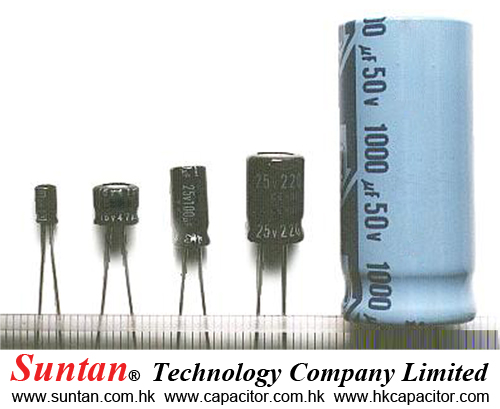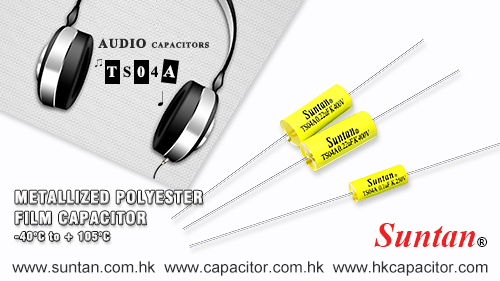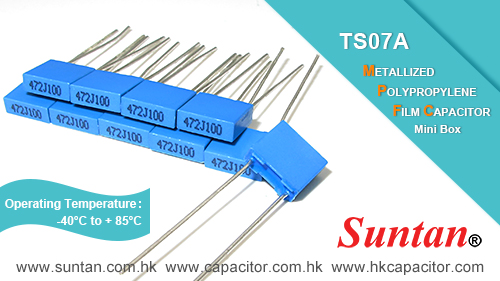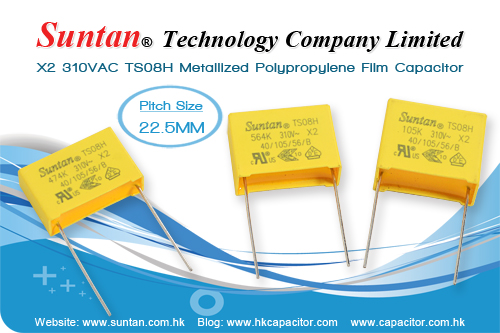Suntan Technology Company Limited
---All kinds of Capacitors
Aluminum is used for the electrodes by using a thin oxidization membrane.
Large values of capacitance can be obtained in comparison with the size of the capacitor, because the dielectric used is very thin.
The most important characteristic of electrolytic capacitors is that they have polarity. They have a positive and a negative electrode.[Polarised] This means that it is very important which way round they are connected. If the capacitor is subjected to voltage exceeding its working voltage, or if it is connected with incorrect polarity, it may burst. It is extremely dangerous, because it can quite literally explode. Make absolutely no mistakes.
Generally, in the circuit diagram, the positive side is indicated by a "+" (plus) symbol.
Electrolytic capacitors range in value from about 1µF to thousands of µF. Mainly this type of capacitor is used as a ripple filter in a power supply circuit, or as a filter to bypass low frequency signals, etc. Because this type of capacitor is comparatively similar to the nature of a coil in construction, it isn't possible to use for high-frequency circuits. (It is said that the frequency characteristic is bad.)
The photograph on the left is an example of the different values of electrolytic capacitors in which the capacitance and voltage differ.
From the left to right:
- 1µF (50V) [diameter 5 mm, high 12 mm]
- 47µF (16V) [diameter 6 mm, high 5 mm]
- 100µF (25V) [diameter 5 mm, high 11 mm]
- 220µF (25V) [diameter 8 mm, high 12 mm]
- 1000µF (50V) [diameter 18 mm, high 40 mm]
The size of the capacitor sometimes depends on the manufacturer. So the sizes shown here on this page are just examples.
In the photograph to the right, the mark indicating the negative lead of the component can be seen. You need to pay attention to the polarity indication so as not to make a mistake when you assemble the circuit.





